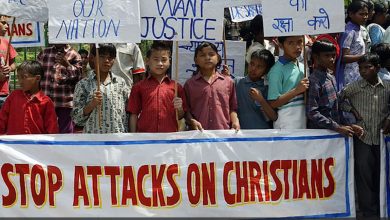Hindutva priest’s shop nameplate directive in MP sparks concerns over anti-Muslim bias
 Bhopal: Following similar orders in Uttar Pradesh and Uttarakhand, shopkeepers in Madhya Pradesh (MP) are now required to display nameplates outside their establishments as per a directive from Hindutva priest Dhirendra Krishna Shastri.
Bhopal: Following similar orders in Uttar Pradesh and Uttarakhand, shopkeepers in Madhya Pradesh (MP) are now required to display nameplates outside their establishments as per a directive from Hindutva priest Dhirendra Krishna Shastri.
According to Kashmir Media Service, this move has sparked concerns over potential bias against Muslim shopkeepers. Similar mandates in Uttar Pradesh and Uttarakhand have been criticized for targeting minority communities, leading the opposition in these states to take the matter to the Supreme Court, which has stayed the directions issued by authorities. Despite the stay, some shopkeepers in Uttar Pradesh have begun complying with the new regulations.
Shastri claimed the rule aims to ensure clear identification of shopkeepers in Bageshwar Dham, Chhatarpur, Madhya Pradesh, and is not intended to target any particular religious group. He stated, “There should be no issue in displaying names. This will prevent the corruption of faith among the visiting devotees.”
He emphasized the importance of compliance: “We will discuss this in our committee meeting and instruct our officials to enforce it. It is important for every shop in the dham to display a nameplate. Ensure nameplates are installed within 10 days, or else legal action will be taken by the dham committee.”
Critics argue that such mandates, under the guise of transparency, disproportionately impact Muslim shopkeepers and could exacerbate communal tensions. The directive raises questions about the underlying intentions and the potential for discrimination against minority communities.








